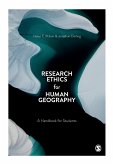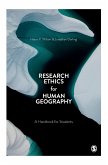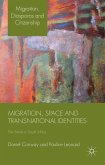In 2014, the ethics and politics of hospitality were brought into stark relief. Three years into the Syrian conflict, which had already created nearly 2.5 million refugees and internally displaced 6.5 million, the UN called on industrialised countries to share the burden of offering hospitality through a fixed quota system. The UK opted out of the system whilst hailing their acceptance of a moral responsibility by welcoming only 500 of the most vulnerable Syrians. Given the state s exclusionary character, what opportunities do other spaces in international politics offer by way of hospitality to migrants and refugees?
Hospitality can take many different forms and have many diverse purposes. But wherever it occurs, the boundaries that enable it and make it possible are both created and unsettled via exercises of power and their resistance. Through modern examples including refugee camps, global cities, postcolonial states and Europe, as well as analysis of Derrideanand Foucauldian concepts, Migration, Ethics and Power explores:
The process and practice of hospitality The spaces that hospitality produces The intimate relationship between ethics and power
This is a brilliantly contemporary text for students of politics, international relations and political geography.
Hospitality can take many different forms and have many diverse purposes. But wherever it occurs, the boundaries that enable it and make it possible are both created and unsettled via exercises of power and their resistance. Through modern examples including refugee camps, global cities, postcolonial states and Europe, as well as analysis of Derrideanand Foucauldian concepts, Migration, Ethics and Power explores:
The process and practice of hospitality The spaces that hospitality produces The intimate relationship between ethics and power
This is a brilliantly contemporary text for students of politics, international relations and political geography.
Dan Bulley explores how hospitality could be best managed for different types of migrations, examining the various reasons driving these decisions, and exploring the perspectives of countries and international organizations to help build an ethical structure of hospitality. He clearly explains why people move from one place to another; and the book helps structure an international ethics conception, and explicates the measures to be taken in this context. It is a valuable resource for students, researchers and those interested in contributing to the field with new studies. Yakup Sari








